
Rozomed 40 Tablet
Manufacturer
Mediday Healthcare Pvt Ltd
Salt Composition
Rosuvastatin (40mg)
Key Information
Short Description
Rozomed 40 Tablet belongs to a group of medicines called statins. It is used to lower cholesterol and reduce the risk of heart disease.
Dosage Form
Tablet
Introduction
Rozomed 40 Tablet is a widely prescribed medicine and is regarded as safe for long-term use. It can be taken with a meal or on an empty stomach. You can take it at any time of the day but try to take it at the same time each day. Most people with high cholesterol do not feel ill but stopping your medicine may increase your cholesterol levels making your condition worse and increasing your risk of heart disease and stroke.
Directions for Use
Take this medicine in the dose and duration as advised by your doctor. Swallow it as a whole. Do not chew, crush or break it. Rozomed 40 Tablet may be taken with or without food but it is better to take it at a fixed time.
How it works
Rozomed 40 Tablet is a lipid-lowering medication (statin). It works by blocking an enzyme (HMG-CoA-reductase) that is required by the body to make cholesterol thereby lowering 'bad' cholesterol (LDL) and triglycerides and raising 'good' cholesterol (HDL).
Quick Tips
Take it with food if you experience diarrhea, gas or an upset stomach. Take it with food if you experience fatigue, muscle weakness or muscle pain. Monitor your liver function before starting the treatment and regularly thereafter. Monitor your blood sugar level regularly as Rozomed 40 Tablet may cause an increase in your blood sugar level. Do not take Rozomed 40 Tablet if you are pregnant, planning a pregnancy or breastfeeding.
Related Medicines
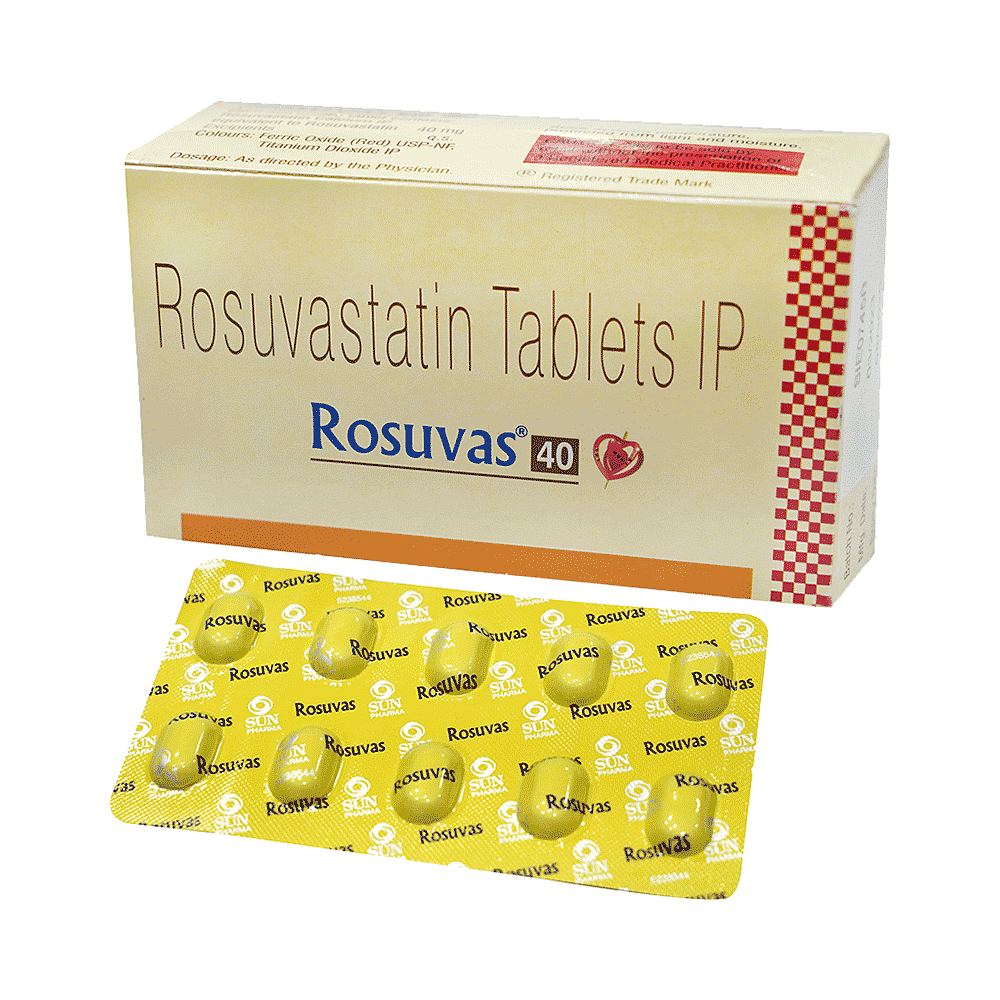
Rosuvas 40 Tablet

Rozavel 40 Tablet
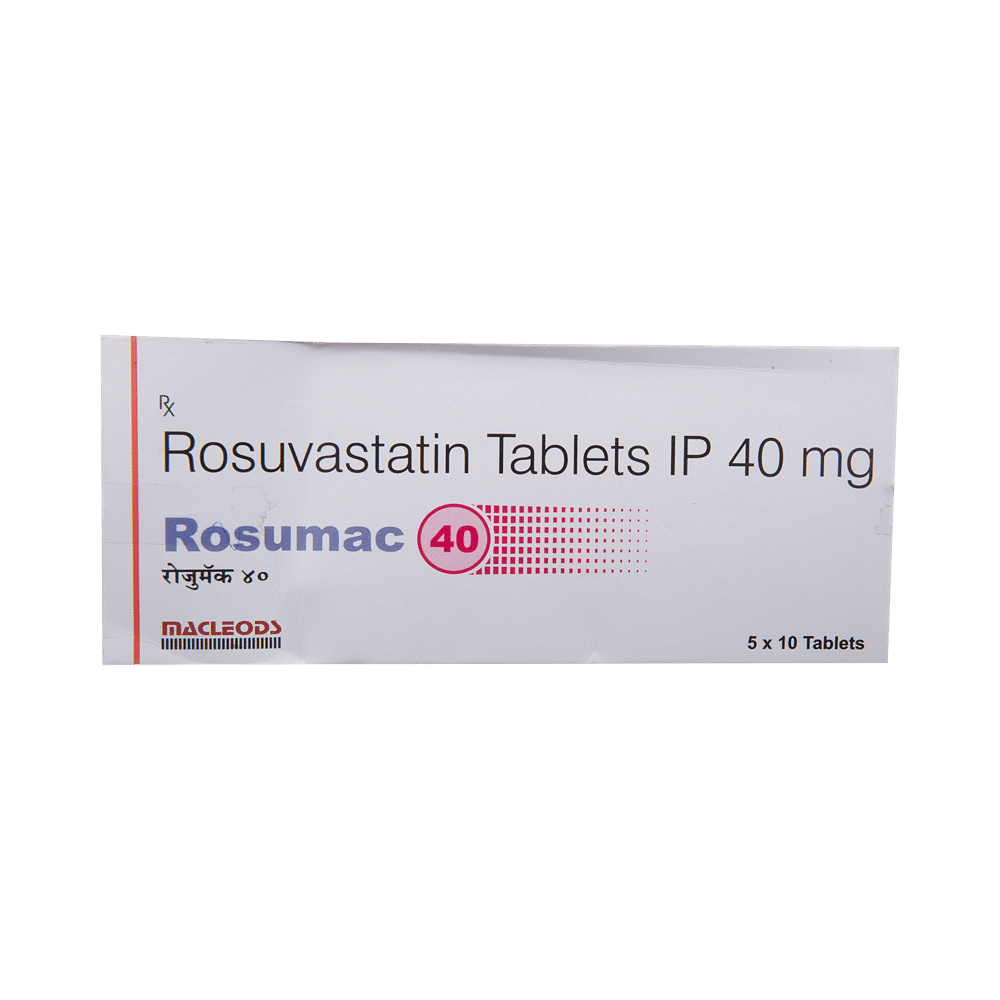
Rosumac 40 Tablet

Statpure 40 Tablet
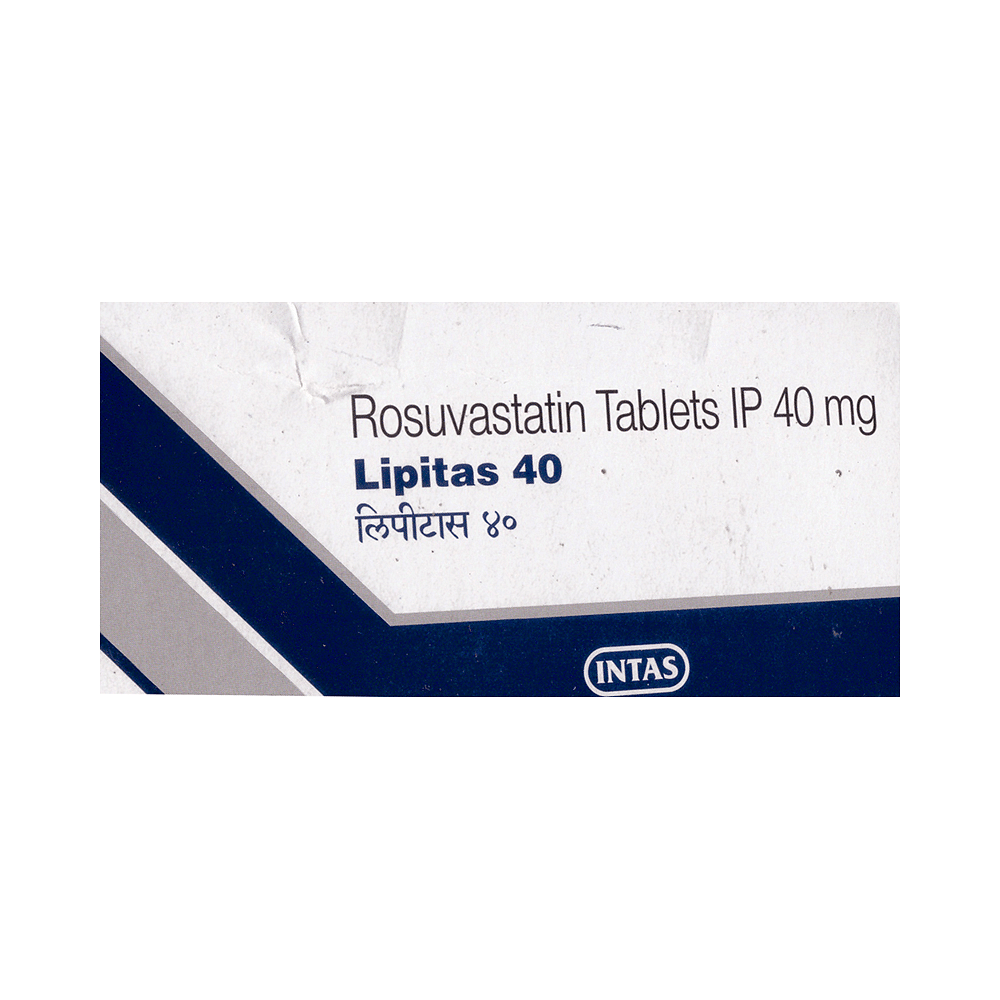
Lipitas 40mg Tablet
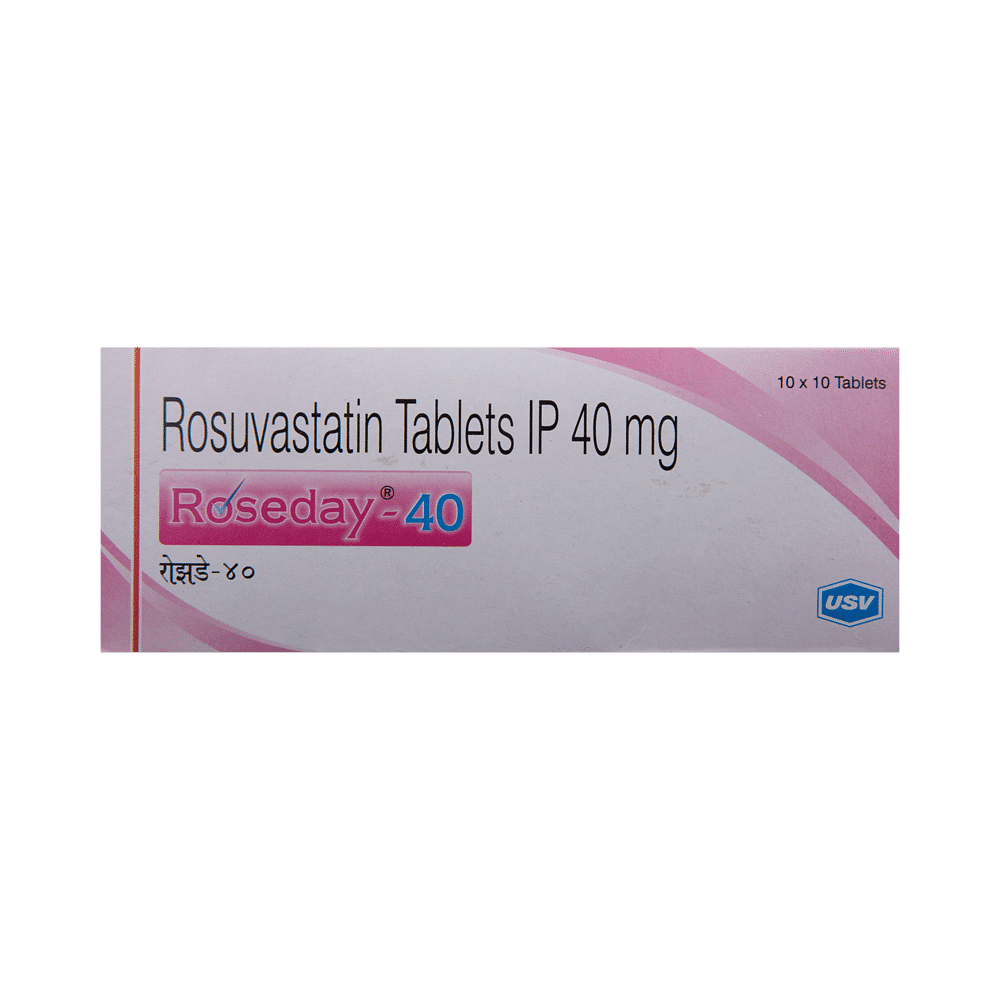
Roseday 40 Tablet

Novastat 40 Tablet

Crevast 40 Tablet

Rosuless-40 Tablet
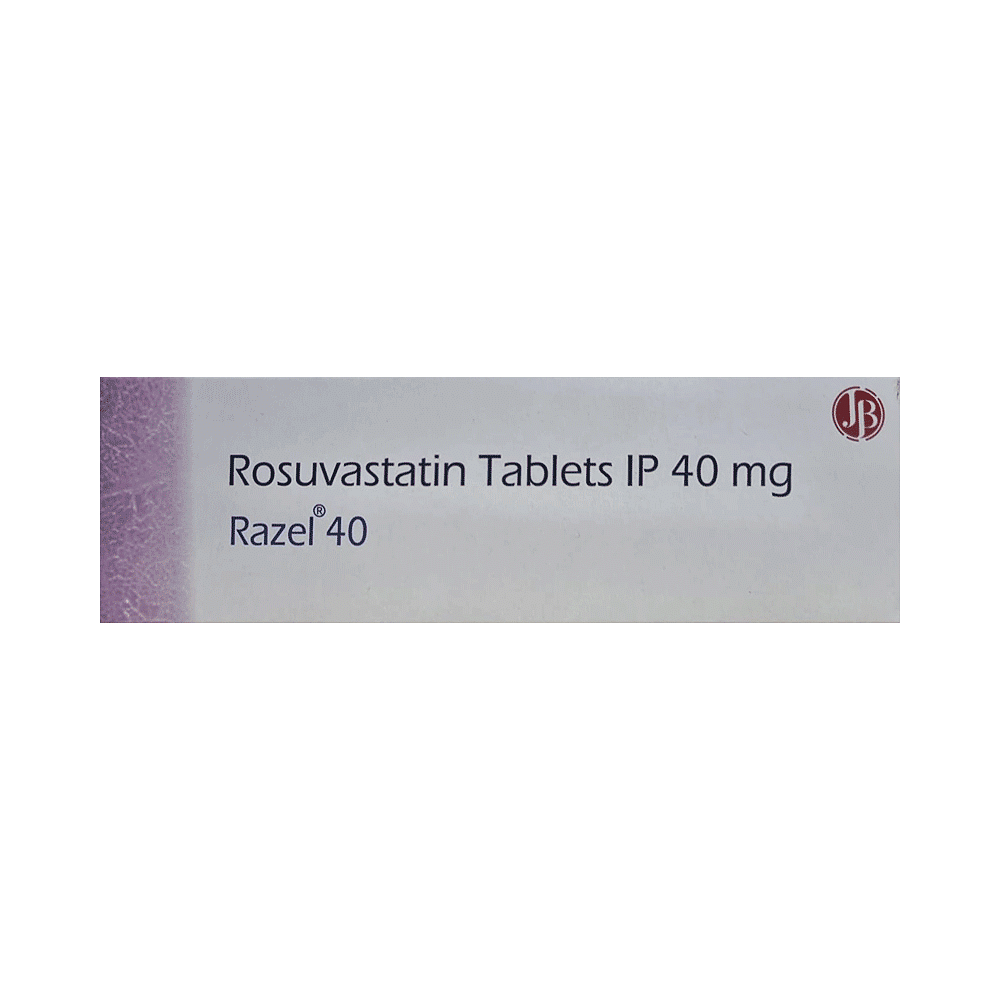
Razel 40 Tablet
Frequently asked questions
How long should I take Rozomed 40 Tablet?
The duration of treatment with Rozomed 40 Tablet will depend on individual circumstances and may be continued indefinitely or for as long as directed by your physician. Maintaining stable cholesterol levels is achievable while taking Rozomed 40 Tablet. Discontinuing this medication without alternative therapy could lead to increased cholesterol levels. It's crucial to follow your healthcare provider's instructions precisely.
Does Rozomed 40 Tablet cause weight gain?
There is currently no evidence to support the claim that Rozomed 40 Tablet directly causes weight gain. If you notice any unintended weight changes while taking this medication, consult your physician for a thorough evaluation.
Does Rozomed 40 Tablet make me tired?
Yes, some individuals may experience fatigue as a side effect of taking Rozomed 40 Tablet. This is due to its impact on muscle energy supply. The exact reason for this phenomenon requires further research. Fatigue typically occurs after exertion and can be more prominent in those with pre-existing conditions like heart disease or liver problems. Muscle damage caused by Rozomed 40 Tablet can also contribute to increased tiredness.
When should I take Rozomed 40 Tablet?
Rozomed 40 Tablet is taken once daily. It can be administered in the morning, afternoon, or evening, as well as before or after meals. The crucial factor is to maintain consistency in timing for optimal medication adherence.
What foods should I avoid when taking Rozomed 40 Tablet?
The use of Rozomed 40 Tablet aims to decrease blood cholesterol levels. To maximize its efficacy, consuming a balanced diet with minimal saturated and trans fats, as well as maintaining a low-fat and low-cholesterol intake, is highly recommended. You should consult your healthcare provider or dietitian for further dietary guidance.
How do I know if Rozomed 40 Tablet is beneficial for me?
The use of Rozomed 40 Tablet has been shown to reduce cholesterol levels and decrease the risk of heart attack and stroke. However, discuss any concerns with your physician to gain a complete understanding of its benefits and potential risks in your individual context.
Can Rozomed 40 Tablet cause memory loss?
In very rare cases, Rozomed 40 Tablet may contribute to memory impairment. While typically non-serious and might manifest within a day or occur years later, these symptoms could subside within a few weeks of stopping the medication. If you experience this side effect, consult your physician for further evaluation.
Can Rozomed 40 Tablet cause muscle problems or injury?
Yes, using Rozomed 40 Tablet may lead to muscle problems or injuries due to reduced oxygen supply to the muscles. These results in fatigue, muscle pain, tenderness, or weakness. You should consult your physician if experiencing these issues and discuss appropriate steps for prevention and management.
Is it true that Rozomed 40 Tablet can cause diabetes?
While taking Rozomed 40 Tablet might slightly increase the risk of developing type 2 diabetes in individuals predisposed to the condition, this is not a guaranteed outcome. If you have existing type 2 diabetes, closely monitor your blood sugar levels during the initial few months after starting the medication. If you experience difficulties managing your blood sugar, inform your physician immediately.


